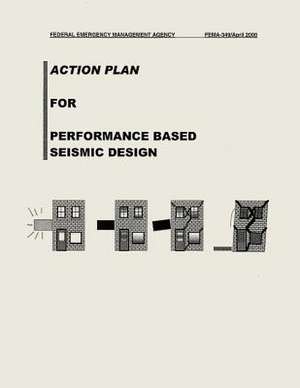Action Plan for Performance Based Seismic Design (Fema 349)
Autor Federal Emergency Management Agencyen Limba Engleză Paperback
Preț: 126.23 lei
Nou
Puncte Express: 189
Preț estimativ în valută:
24.16€ • 25.11$ • 20.01£
24.16€ • 25.11$ • 20.01£
Carte disponibilă
Livrare economică 14-28 ianuarie 25
Preluare comenzi: 021 569.72.76
Specificații
ISBN-13: 9781482788433
ISBN-10: 1482788438
Pagini: 88
Dimensiuni: 216 x 279 x 5 mm
Greutate: 0.23 kg
Editura: CREATESPACE
ISBN-10: 1482788438
Pagini: 88
Dimensiuni: 216 x 279 x 5 mm
Greutate: 0.23 kg
Editura: CREATESPACE
